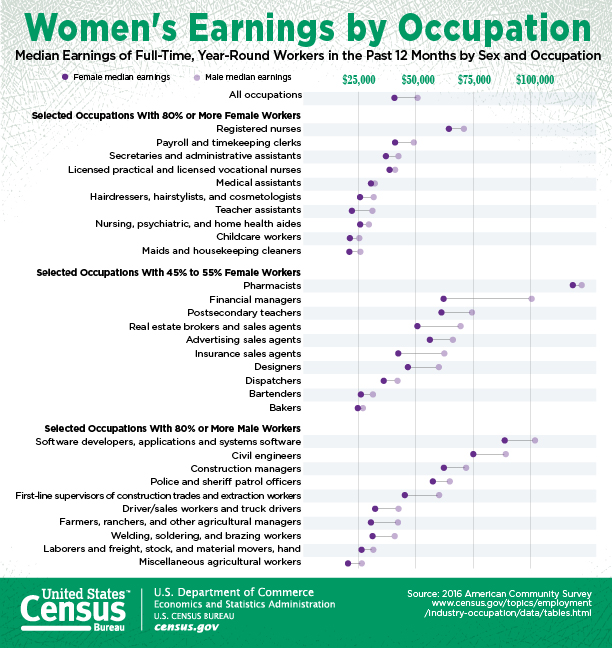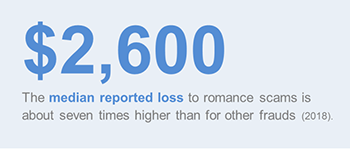Money
 Foiling an Elder Fraud Scam; Former FBI Director Webster Assists Investigation
Foiling an Elder Fraud Scam; Former FBI Director Webster Assists Investigation
Persistent calls in 2014 to William Webster and his wife, Lynda, followed the familiar arc of scams that target the elderly: The caller promises riches but requires some form of payment to move the process forward. The caller demands more and more, and then resorts to intimidation when the cooperation tapers off. In the Websters’ case, the former judge was told he had to pay $50,000 to get his prize. When the money wasn’t forthcoming, the frequent calls escalated to scary threats, which led the couple to contact the FBI. “I don't know how the conversation turned sour,” said Webster, 95, director of the FBI for a decade beginning in 1978. “But it did. And at that point, he shifted gears. Instead of sweet talk, he began to threaten her.” more »
 Earnings for Full-time, Year-round workers: Women at Work From the US Census Bureau
Earnings for Full-time, Year-round workers: Women at Work From the US Census Bureau
The occupation table shows the female earnings for full-time, year-round workers in 2017 and figures on the number of women in select occupations. The Census Bureau collects data on industry, occupation and class of worker for the labor force. more »
 US Federal Trade Commission: Romance Scams Rank First On Total Reported Losses
US Federal Trade Commission: Romance Scams Rank First On Total Reported Losses
From the FTC: Romance scammers lure people with phony online profiles, often lifting photos from the web to create attractive and convincing personas. They might make up names or assume the identities of real people. Reports indicate the scammers are active on dating apps, but also on social media sites that aren’t generally used for dating. For example, many people say the scam started with a Facebook message. Once these fraudsters have people by the heartstrings, they say they need money, often for a medical emergency or some other misfortune. They often claim to be in the military and stationed abroad, which explains why they can’t meet in person. more »
 GAO: A Comprehensive Re-evaluation Needed to Better Promote Future Retirement Security
GAO: A Comprehensive Re-evaluation Needed to Better Promote Future Retirement Security
Congress generally has sought to address retirement-related issues in an incremental fashion. Also, no one agency is responsible for overseeing the US retirement system in its entirety, so there is no obvious federal agency to lead a comprehensive reform effort. It has been nearly 40 years since a federal commission has conducted a comprehensive evaluation of the nation's approach to financing retirement. Without a more comprehensive re-evaluation of the challenges across all three pillars of the system, it may be difficult to identify effective, enduring solutions. Unless timely action is taken, many older Americans risk not having sufficient means for a secure and dignified retirement. more »






